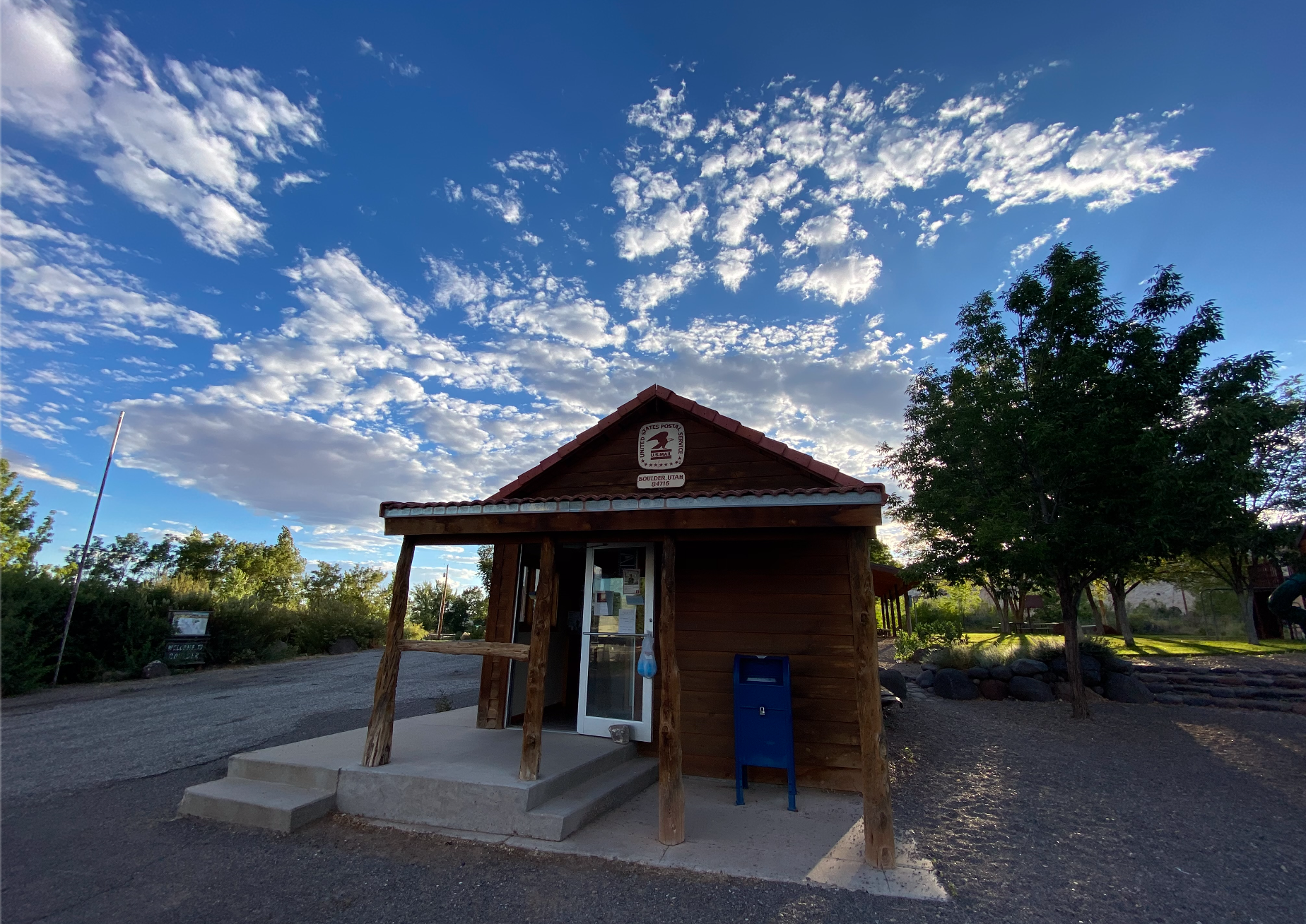Rural Utahns worry about post offices

Read the original article in the Moab Sun Times.
What happens if a post office disappears?
For folks living in a city, it might be an inconvenience. But for one in five Americans, particularly in rural areas, the next post office can be miles away.
Recently, the postal clerk at the tiny post office in remote Boulder, Utah, left her position. The United States Postal Service has yet to hire a replacement and some residents see this as a local symptom of nationwide difficulties, worrying about the larger implications.
“We’re a town of about 300, and a lot of people make their living through the mail. They’re sending products that they make, sending books, sending ballots, sending money and receiving medication,” said Sam Van Wetter, a Boulder resident.
Boulder residents aren’t alone in their worries: one in five Americans live in rural communities where services can be scarce and packages have to travel far to find their recipients. The USPS follows a universal service obligation, meaning that they are legally required to deliver mail to every American residence, no matter how remote and inconvenient, at a flat rate nationwide.
These small rural post offices, however, could be under threat of closing due to increased pressure and lack of emergency relief for the USPS.
Due to a mix of reduced revenue from the global coronavirus pandemic, previous financial burden from a 2006 congressional act, and an openly hostile presidential administration, the USPS is increasingly under major strain.
Bailing Out the USPS
“If that relief doesn’t come, then the post office will run out of money. It’s not a question of if, but a question of when,” said the American Postal Workers Union President Mark Dimondstein in a call with the Moab Sun News.
Like many businesses and organizations, the USPS has been hit by the economic fallout of the global pandemic caused by COVID-19.
No tax dollars go to the USPS under normal circumstances, as the independent agency is self-funded by sales and shipping fees. However, the post office is requesting $89 billion dollars from Congress to weather the economic stresses from the COVID-19 pandemic.
Without that funding, the USPS will have to use cost-cutting measures which slow down mail and make the service less accessible to millions of Americans.
Even before the pandemic, the USPS was already saddled with debt. The postal service was profitable from 2003-2006, but a 2006 law passed by Congress burdened the organization with an obligation to fund 75 years’ worth of employee retirement benefits within ten years, amounting to costs of over $5 billion a year.
Each year since that change, the organization has taken major losses. According to a report released this month, the USPS had a net loss of $2.2 billion this past quarter, slightly less than this same quarter last year due to an increase in shipping packages.
Recently appointed Postmaster General Louis DeJoy has announced an “operational pivot” which has controversially cut costs while slowing down mail delivery. Critics say the plan is part of an attack on the postal service ahead of the November national election when mail-in ballots are expected to be a crucial tool for voters. President Donald Trump has questioned the USPS’s ability to handle ballots by mail and referred to the postal service as “a joke” in March 2020.
However, according to the Pew Research Center, the USPS has a public approval rating of 91%: a rate higher than any other government office.
Cost-saving measures like reducing post offices, regionally adjusted pricing or even shortening the delivery week from six days to five days have been proposed as solutions to the USPS deficit in the past.
For the citizens of Boulder and other rural towns, this could mean a whole host of difficulties. Without a currently staffed post office, the town is already feeling some of those effects as residents must drive over an hour to and from the post office in Escalante, Utah, to buy stamps or pay for postage
“We’ve got people who receive Social Security checks, pension checks and medication through the mail,” said Van Wetter. “If we lost our post office, that would mean that our aging population has to travel 40 miles over two-lane highways to get those same things.”